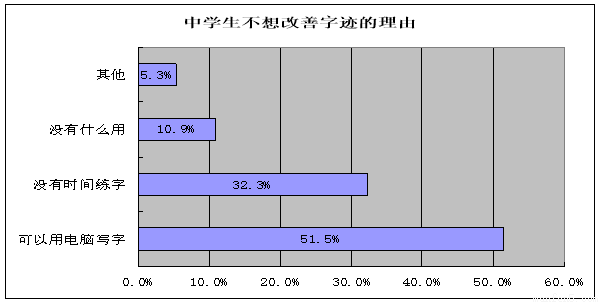题目内容
When I was 17 years old, I left my comfortable home in a wealthy Midwestern suburb to live as a foreign exchange student in a lower-middle-class neighborhood in a foreign country. I in an apartment with no elevators, no dishwashers and one washer for 300 . The tile(瓷砖)floors were always and the rainy winter days there seemed endless. I to wash my clothes by hand in the bathtub and water was so costly, I trained myself to my waist-length hair in less than five minutes.
At that time there were no cell phones and the Internet didn’t exist so far six months I had no at all with my family or friends in the US. I had no relatives there so I to face the fact that my to adapt and create a life for ,was one hundred percent up to me. At age seventeen my need for friends was and not knowing a soul was, needless to say, a bit stressful.
To to my stress, I didn’t speak the and had no familiarity with the monetary(货币的)system nor the transportation system. One more that created stress was my family. Of all the families in the city I lived, I was with the ones who spoke the least (or worst) English.
Living abroad and developing in a foreign language required persistence and determination. I made many mistakes the way. Now I’ve transformed my memories into my medals of honor (荣誉勋章). They’re the treasured stories that offer wisdom, provide me with insights into friends and family and provide me with the that I can surpass future challenges.
1.A. moved B. lived C. turned D. took
2.A. places B. names C. children D. families
3.A. warm B. empty C. tidy D. cold
4.A. tried B. asked C. learned D. forced
5.A. although B. since C. unless D. once
6.A. wash B. comb C. arrange D. adopt
7.A. contact B. quarrel C. letter D. chance
8.A. turned B. needed C. pretended D. stopped
9.A. imagination B. ability C. question D. career
10.A. myself B. other C. another D. none
11.A. impossibleB. hopeless C. beneficial D. strong
12.A. adapt B. apply C. add D. reduce
13.A. truth B. language C. fact D. word
14.A. scene B. shortage C. fault D. challenge
15.A. own B. former C. host D. guest
16.A. occupied B. housed C. compared D. chosen
17.A. fluency B. trouble C. habit D. fame
18.A. over B. along C. in D. during
19.A. harmful B. beautiful C. hopeful D. stressful
20.A. advantage B. confidence C. promise D. future
1.B
2.D
3.D
4.C
5.B
6.A
7.A
8.B
9.B
10.A
11.D
12.C
13.B
14.D
15.C
16.B
17.A
18.B
19.D
20.B
【解析】
试题分析:本文讲述作者17岁离家作为交换生生活在国外,所面临的挑战,这种经历让自己变得更明智,自信。
1.B考查动词辨析A. moved移动;B. lived 住;C. turned 转向;D. took带走;句意:我住在一个没有电梯没有洗碗机没有洗衣机的300家的公寓。根据语境可知是住在这里,故选B项。
2.2】D考查名词辨析 A. places地点;B. names名字;C. children孩子;D. families家庭;句意:我住在一个没有电梯没有洗碗机没有洗衣机的300家的公寓。
3.3】D考查形容词辨析A. warm温暖的;B. empty空的;C. tidy整洁的;D. cold冷的;句意:瓷砖的地板是冷的,下雨的冬天,永远不会结束。根据下方提到the rainy winter days there seemed endless可知选D项。
4.4】C考查动词辨析A. tried尝试;B. asked问;C. learned学习;D. forced强迫;句意:我学会用手洗衣服。根据上文提到没有洗衣机故选C项。
5.5】B考查连词辨析A. although 虽然;B. since自从,因为;C. unless除非;D. once一旦;句意:因为水比较凉,我训练自己在五分种内洗完头发。根据两个句子是因果关系,故选B项。
6.6】A考查动词辨析A. wash 洗;B. comb 梳理;C. arrange安排;D. adopt适应;句意:因为水比较凉,我训练自己在五分种内洗完头发。根据语境可知在洗头发,故选A项。
7.7】A 考查名词辨析A. contact联系;B. quarrel吵架;C. letter信;D. chance机会;句意:我没有任何的与家人联系的方式。根据上文提到At that time there were no cell phones and the Internet didn’t exist so far six months可知没有任何的联系方式,故选A项。
8.8】B考查动词辨析A. turned转向;B. needed需要;C. pretended假装;D. stopped停止;句意:我没有亲戚因此我需要面对现实,我的适应能力,自己创造生活的能力都得全部靠自己,need to do 需要做某事,故选B项。
9.9】B考查名词辨析A. imagination想象;B. ability 能力;C. question 问题;D. career事业;句意:我没有亲戚因此我需要面对现实,我的适应能力,自己创造生活的能力都得全部靠自己,根据语境选B项。
10.0】A考查代词辨析A. myself我自己;B. other其它的;C. another另外一个;D. none没有;句意:我没有亲戚因此我需要面对现实,我的适应能力,自己创造生活的能力都得全部靠自己,根据语境可知自己创造生活,故选A项。
11.1】D考查形容词辨析A. impossible不可能;B. hopeless没有希望的;C. beneficial有益的;D. strong 强壮的;句意:在十七岁的年季,我对朋友的渴望是强烈的,更不用说,不知道一个人的灵魂是有压力的。根据语境可知选D项。
12.2】C考查动词辨析A. adapt 采纳;B. apply提供;C. add加;D. reduce减少 。句意:为了增加压力,我不会说当地语言,没有熟悉的货币和交通系统。根据上文提到not knowing a soul was, needless to say, a bit stressful.可知选C项。
13.3】B考查名词辨析A. truth真实;B. language 语言;C. fact事实;D. word单词;句意:为了增加压力,我不会说当地语言,没有熟悉的货币和交通系统。根据语境选B项。
14.4】D 考查名词辨析A. scene场景;B. shortage 缺乏;C. fault 错误;D. challenge挑战;句意:我在寄宿家不止一种挑战会给我带来压力。根据语境可知作者什么也不会,故是挑战。
15.5】C考查名词辨析A. own拥有;B. former前者;C. host主人;D. guest客人;句意:我在房东家不止一种挑战会给我带来压力,根据上文提到I didn’t speak the and had no familiarity with the monetary(货币的)system nor the transportation system.可知选C项。
16.6】B考查动词辨析A. occupied占据;B. housed给房子住;C. compared比较;D. chosen选择;句意:在我居住的这个城市的家庭中,我被安排住在几乎不说英语的家里。根据语境选B项。
17.7】A考查名词辨析A. fluency流畅;B. trouble困难;C. habit习惯;D. fame名声;句意:住在国外和发展流利的外语要求的是毅力和决心。根据语境选A项。
18.8】B考查介词辨析A. over超过;B. along沿着; C. in 在。。之内;D. during在。。期间;句意:在这条路上我犯了很多的错误。根据语境可知在国外的生活,故选B项。
19.9】D考查形容词辨析A. harmful有害的;B. beautiful漂亮的;C. hopeful有希望的;D. stressful有压力的;句意:现在我已经把压力的记忆转换成荣誉。根据上文提到To to my stress,可知选D项。
20.20】B考查名词辨析A. advantage优势; B. confidence信心;C. promise 承诺;D. future将来;句意:他们都是可以珍藏的故事,可以提供智慧,提供给我内心支持,提供给我度过未来挑战的自信。根据that I can surpass future challenges.选B项。
考点:日常生活类短文。

 天天向上一本好卷系列答案
天天向上一本好卷系列答案 小学生10分钟应用题系列答案
小学生10分钟应用题系列答案
A. accurately B. advantage C. desirable D. humble AB. adequate AC. knowing AD. processing BC. rapidly BD. target CD. translate ABC. grasp |
A successful translator must have an excellent, up-to-date knowledge of his source language, full facility in the handling of his ___1.____ language, which will be his mother tongue or language of habitual use, and a knowledge of the latest subject-matter in his fields of specialization. This is his professional equipment. In addition to this, it is desirable that he should have an inquiring mind, wide interests, a good memory and the ability to ____2.___ quickly the basic principles of new developments. He should be willing to work on his own, often at high speeds, but should be ____3.___ enough to consult others if his own knowledge doesn’t always prove __4.____ to the task in hand. He should be able to type fairly quickly and ___5.____ and, if he is working basically as an information translator, let us say, for an industrial firm, he should have the flexibility of mind to enable him to switch ___6.____ from one source language to another, as well as from one-subject-matter to another, since this ability is frequently required of him in such work. Bearing in mind the nature of the translator’s work, i. e. the __7.____ of the written word, it is, strictly speaking, unnecessary that he should speak the languages he is dealing with. If he does speak them, it is an ___8.___ rather than a hindrance (障碍), but this skill is in many ways a luxury that makes no much difference to him. It is, however, ___9.___ that he should have a rough idea about the pronunciation of his source languages, even if this is restricted to __10.___ how proper names and place names are pronounced.
